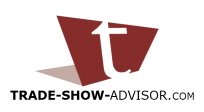International Trade Shows
Part One - Click Here for Part Two
International trade shows and world trade fairs offer immense opportunity for establishing global contacts, evaluating your product’s export suitability; and gaining exposure to potential suppliers, in-country distributors and customers before making any sizable financial commitments.
The following international exhibiting tips, provided by nationally recognized tradeshow expert Susan Friedmann, will help position you for success and reduce concerns, as you plan your global event strategy.
Thoroughly research international exhibiting opportunities to find the ones that represent the highest potential for your business.
A good starting point for U.S. based exhibitors is the Foreign Commercial Service (FSC), part of the International Trade Administration of the Department of Commerce. Other sources of information include banks, trade associations, foreign embassies and consulates, bi-national chambers of commerce and the Internet.
Book space early.
Allocation for space at trade fairs is a "first-come, first-served" basis. Applications need to be submitted as early as possible, ideally 12 to 18 months prior to the event. Reservations are made with show organizers or their international representative. Many large international trade shows have global sales offices.
Coordinate shipping arrangements.
Most international trade shows have an official freight forwarder to handle invoicing, arrange for licenses and declarations, create packing lists, issue bills of lading, handle insurance, and prepare all necessary documentation.
A duty charge is not normally assessed on equipment, unless it is destined to remain in the country after the show ends. An international carnet facilitates importation and movement of samples and professional equipment between countries.
Determine that your product complies with international technical and safety standards.
Some countries have stringent laws regarding product testing to ensure items comply with applicable specifications. In addition, certain types of merchandise are subject to specialized safety codes and technical requirements. It is advisable to use a local consultant to help you through the compliance process.
Establish a realistic budget.
Costs of overseas trade fairs vary widely, depending on a host of variables, including location, exchange rates, industry, and time of the year. In addition to your display, shipping, promotional and staff costs, also take into consideration import duties and export regulations. As a safety net, add 25% to your budget to cover unexpected costs, tipping and exchange rate fluctuations.
Familiarize yourself with overseas union policies.
Strong unions exist in a number of countries, which must be understood and respected. When working with contractors, always have someone who can speak the language and give logistical instructions. Arrive at least a week prior to international trade shows to iron out any kinks.
Get to know pricing.
Your company representatives should be prepared to negotiate and agree to terms at the tradeshow. They should also be fully conversant with tariffs, tax implications, as well as importation and delivery procedures.
When quoting prices, most buyers expect prices quoted "C.I.F." (cost, insurance, freight), including duties, tax and other charges. For a small fee, local freight forwarders will assist and prepare C.I.F. costs.
Make arrangements for credit and payment.
Pre-arrange with a bank that has international banking affiliations to facilitate your banking needs. Discuss arrangements for transfer of funds, letters of credit and bills of exchange.
Potential customers or representatives will expect a credit check. Individual profiles on overseas companies can be found through the World Trader’s Data Reports, available for a small fee from the US Commercial Service.
Use Automated Teller Machines (ATMs) to get local currency.
ATMs typically give the wholesale exchange rate of 5-10%, which is a far better rate than you would get at hotels or currency exchanges. Always try to purchase enough local currency before leaving home to pay your transportation from your destination airport to your hotel, plus extra for tips.
Insist on using a native-born translator.
When translating copy or business communications for international trade shows, always hire a local translator who has technical knowledge of your products/industry. Embarrassing mistakes occur when a translation is done by someone with limited knowledge of a language or understanding of slang, colloquialisms and double-entendres.
Prepare product/service literature, data sheets and catalogs. in the primary languages of the major countries represented at the show. Remember that most countries outside the U.S. use metric measurements.
Offer quality and uniqueness.
High quality products and services are typically expected, and packaging is as important as the product. If your products and services compete directly with native companies, there needs to be something unique in the technology, innovation, design, styling or image to gain acceptance.
Zero in on the fact that doing business overseas demands time and patience.
It may take several appearances at trade shows before your company is taken seriously. Foreigners want to feel confident that you are sincere and totally committed to your involvement in their country.
Train your people.
Make sure that the people who represent your company at international trade fairs are well trained and know the cultural differences of the people with whom they will interact. They should know how to greet and address visitors.
Understanding different business negotiating styles, conversation sensitivities, and how women are treated in business, is essential, in addition to knowing eye contact, handshakes, body posture and spatial distance differences. The key is to develop relationships of trust and sincerity, as they are critical for successful business.
For more global exhibiting strategies, click here: International Trade Shows to read Part Two of this article.
Related Information: International Trade Shows
Trade Show Finder
Trade Show Resources
Insights into Tradeshow Logistics
Share Success Tips Do you have a great exhibiting or marketing tip that enhanced
your trade show results? Share it here! |



